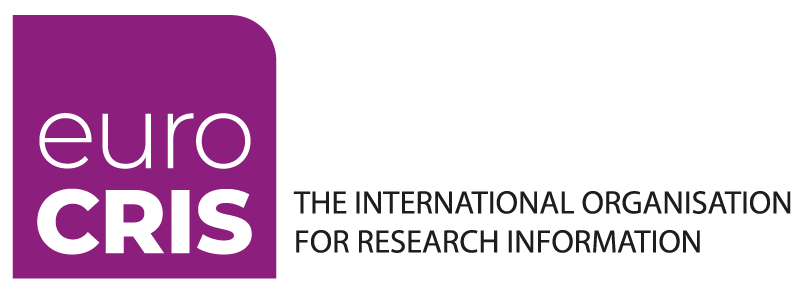From 8-11 June, 2016, the CRIS2016 Conference was held in St Andrews, Scotland
The euroCRIS Board was very pleased to say welcome to about 160 participants coming from Europe and other continents to attend the 13th CRIS Conference. Venue was the Medical School of the University of the beautiful town of St Andrews. As you may know, St Andrews is a small town, but with a rich history. Thanks to the local organisers, we all could learn more about the typical habits of this university town during a guided tour.
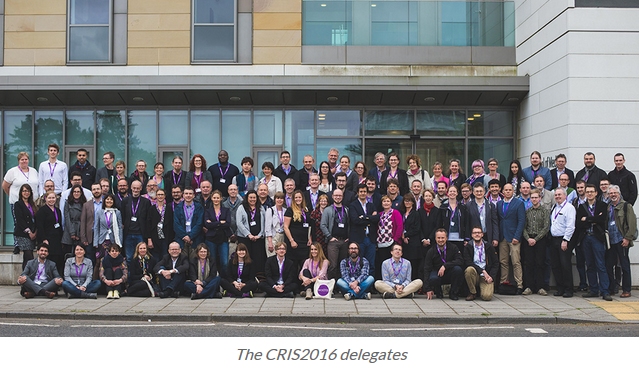
Of course the attendees came primarily to St Andrews to hear on the latest development in the Research Information Landscape and to broaden their international networks. The breaks during the conference days and the social events were excellent opportunities to share ideas with colleagues from other countries. Most exciting was without any doubt the Ceilidh, during which the normally very quiet euroCRIS members were swept up by Celtic music.
Apart from these pleasant activities, there was also time to get informed. The Lecture Hall was crowded with members that hand on every word from the presenters.
This is not the place to discuss all interesting presentations. Here, I'd like to refer to the euroCRIS repository. Nevertheless, some important developments have to be mentioned explicitly. First of all: the world of research data and research data management is getting more and more intertwined with the one of research information systems. A nice example is the European Open Science Cloud (presented by Barend Mons). For the realisation of Open Science, the FAIR-principles [Findable; Accessible; Interoperable; Re-usable) must be obeyed. In this process researchers should be supported by data stewards. Furthermore: the relationships with Open Access (to publications and datasets) were discussed intensively during the conference.
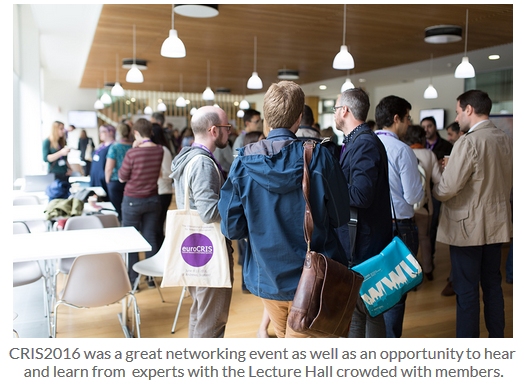
Other aspects that are gaining importance are the interoperability (CERIF-xml) and the usage of identifiers (ORCID; ISNI; DOI). Without these, metrics would not be possible. To combine all this, we should think about news ways to describe datasets (especiallly the value of datasets) in CERIF.
The session was closed with the awarding of the Best Paper Prize. This year, the price was awarded to Masud Khokhar et al (foto) for their paper on Data Management Administration Online, with as runners-up Steven Van Den Berghe (and Kyle Van Gaeveren) with their paper on Data Quality Assessment and Improvement at the Vrije Universiteit Brussel: a Case Study and Mathias Riechert (et al) with the paper Research Information Standards Adoption: Development of a Visual Insight Tool at the University of Cambridge.
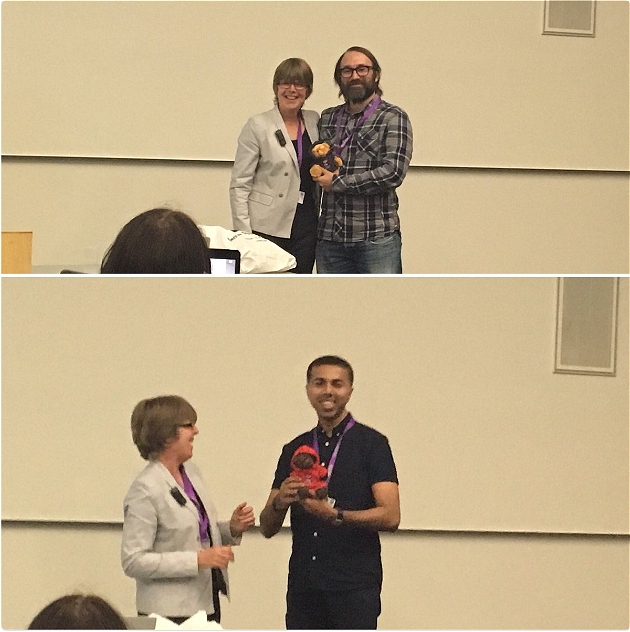
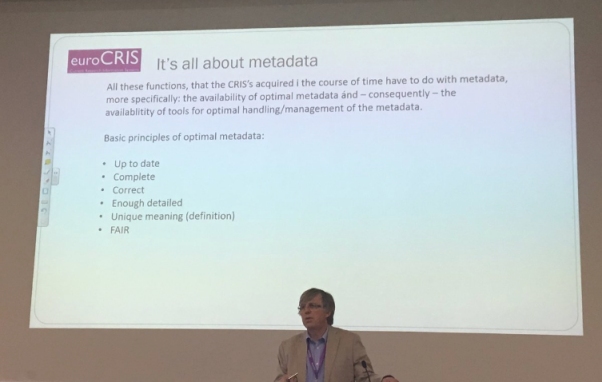
As final remarks, the president Ed Simons stresses the crucial role metadata play in the CRIS systems. They should be optimal; up-to-date; complete; correct; detailed; unambiguous and FAIR. In the further developments of CRIS-systems, euroCRIS has its own responsibility.
1. It will have to convince policy makers on the relevance of CRIS-systems
2. It will have to intensify discussions with researchers to provide them with a clear perspective on these systems
3. Within the already existing infrastructures, it must pay attention to definitions and standards
4. In the realisation of all this, all communities within the research information domain should be willing to collaborate with each other. In this respect an update of CERIF (-xml) seems to be unevitable.
The next meeting euroCRIS will organise it the Strategic Membership Meeting, that will be held in Athens, 8-11 November 2016 at EKT, the Greek National Documentation Centre.
The CRIS2018 conference will probably held in Umea, Sweden, in June 2018.


